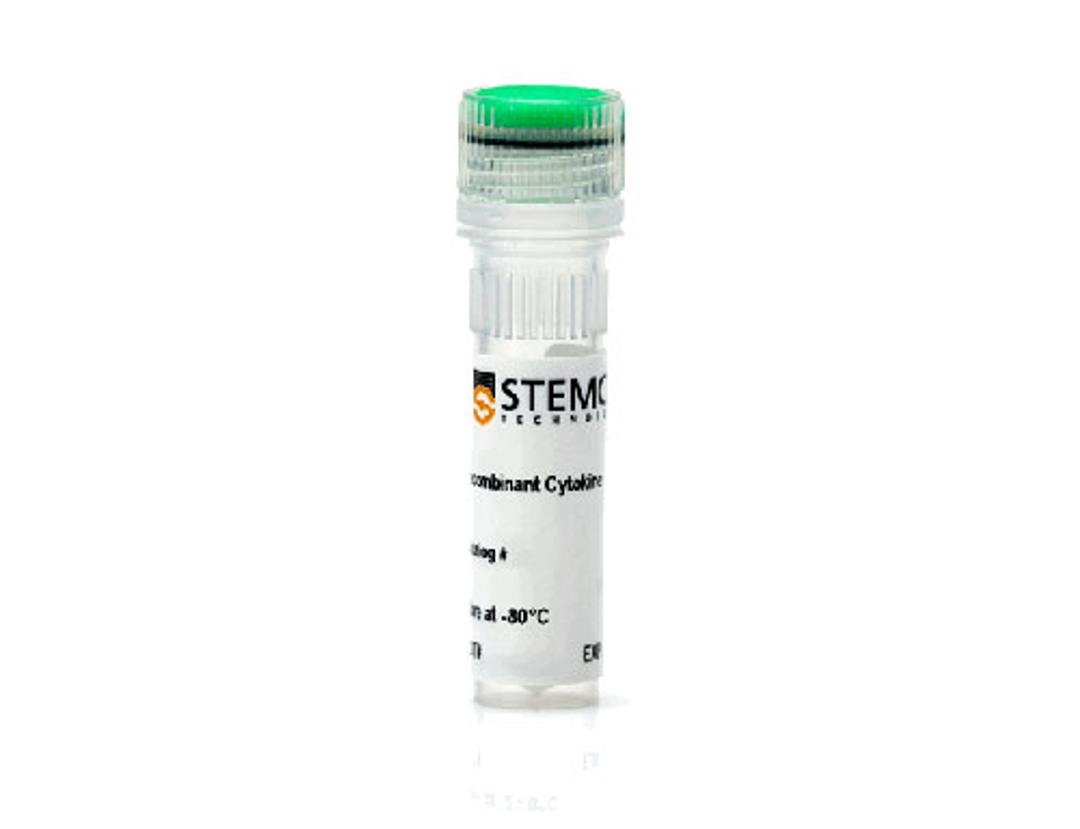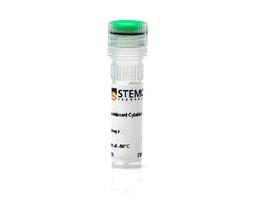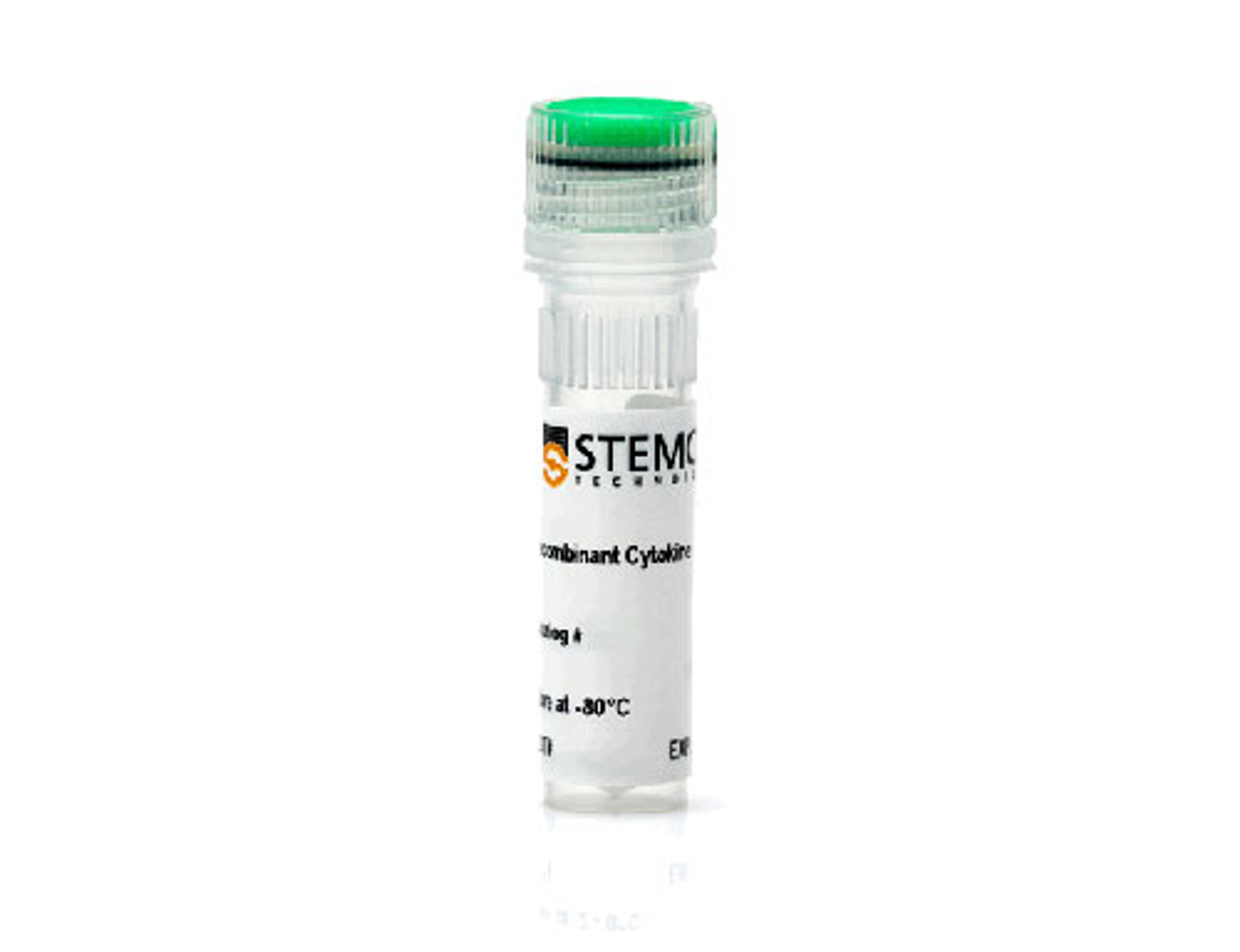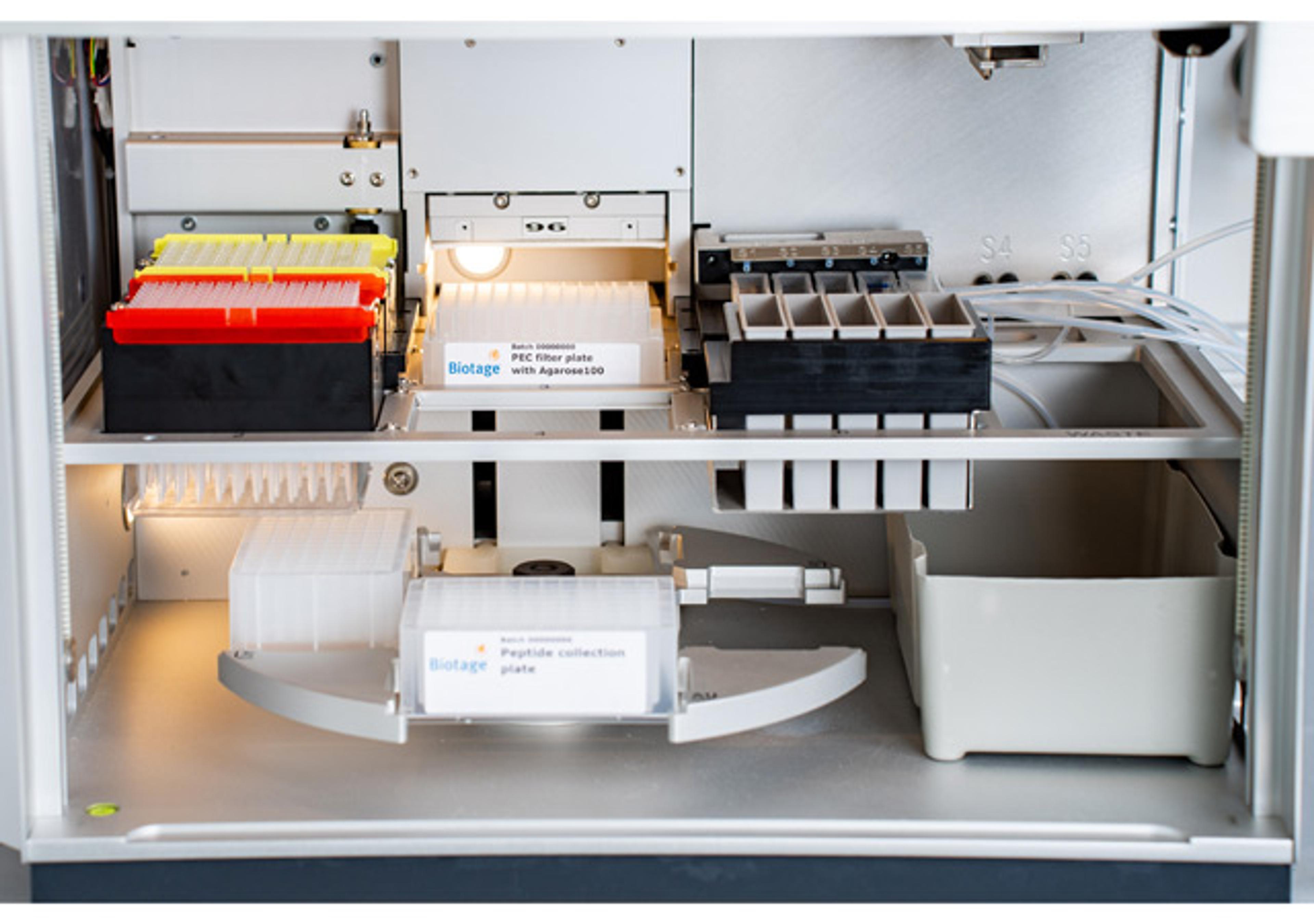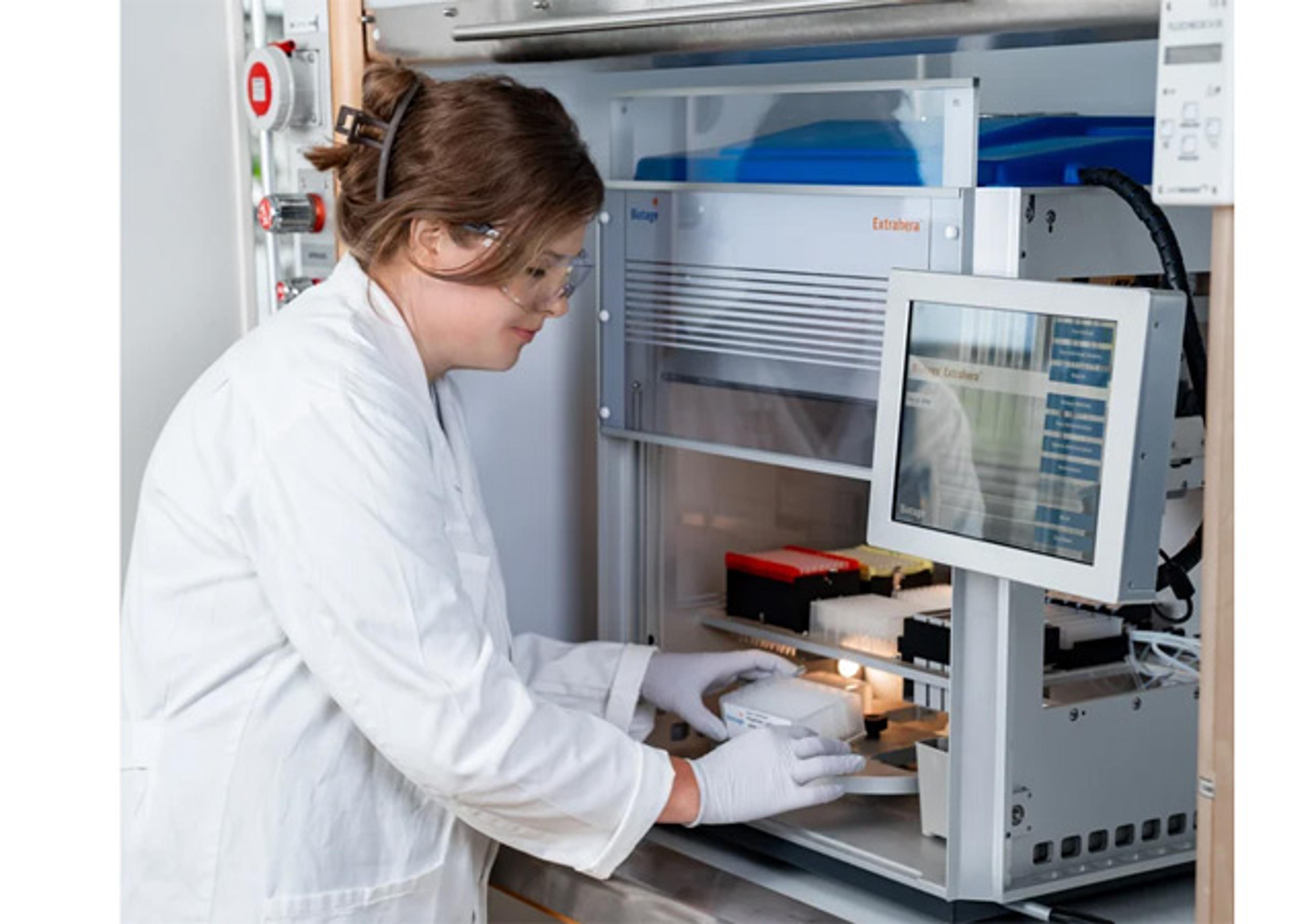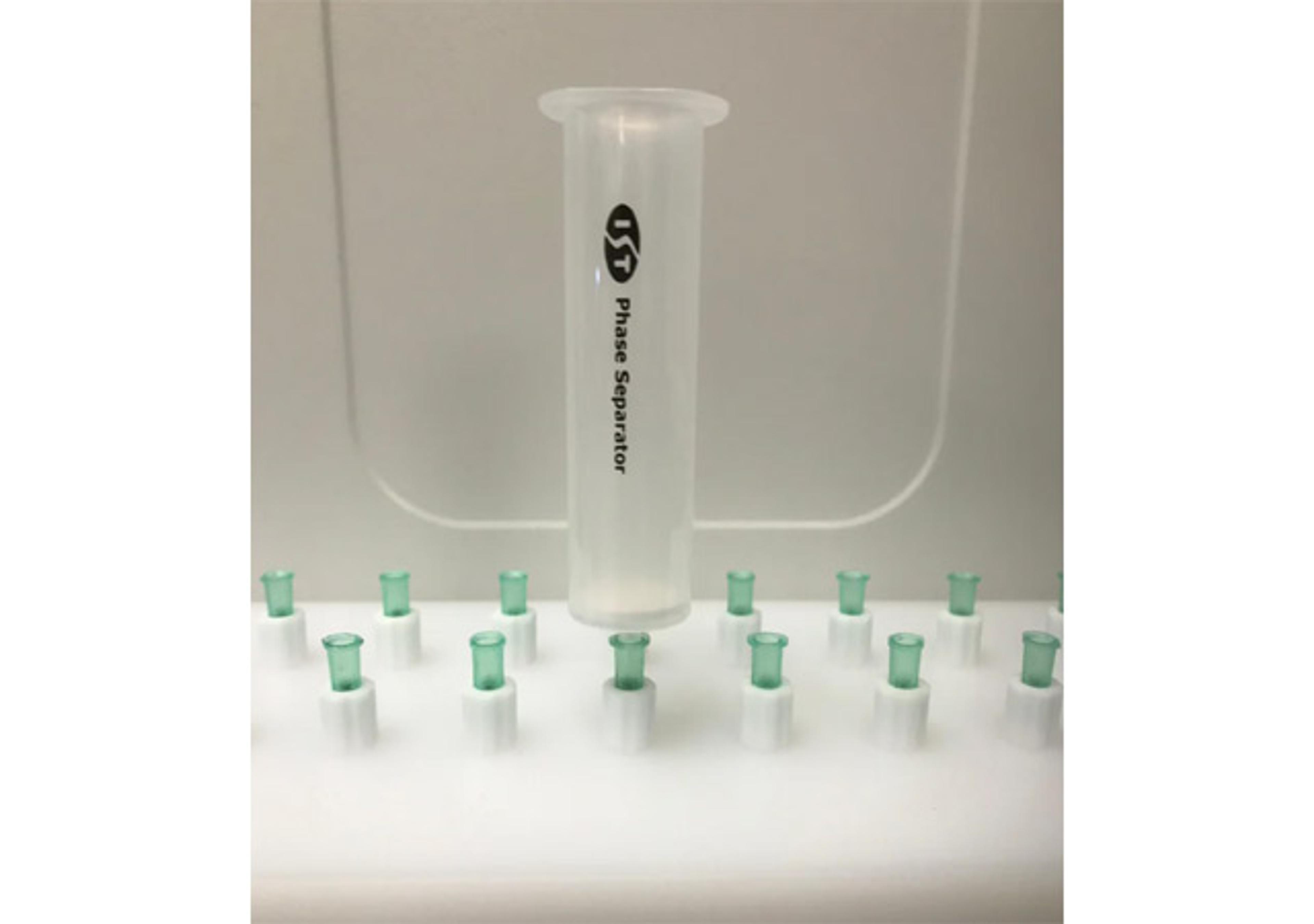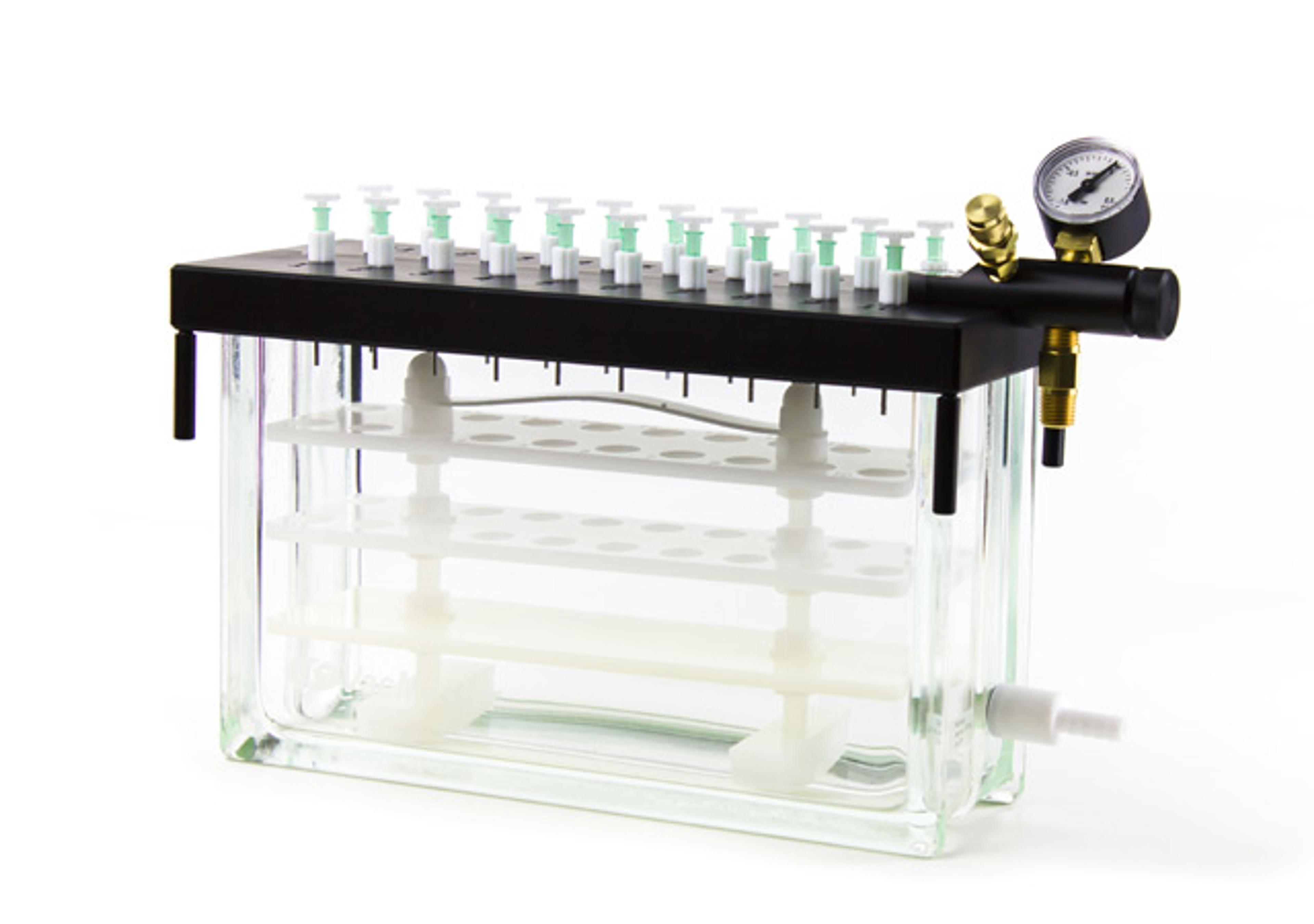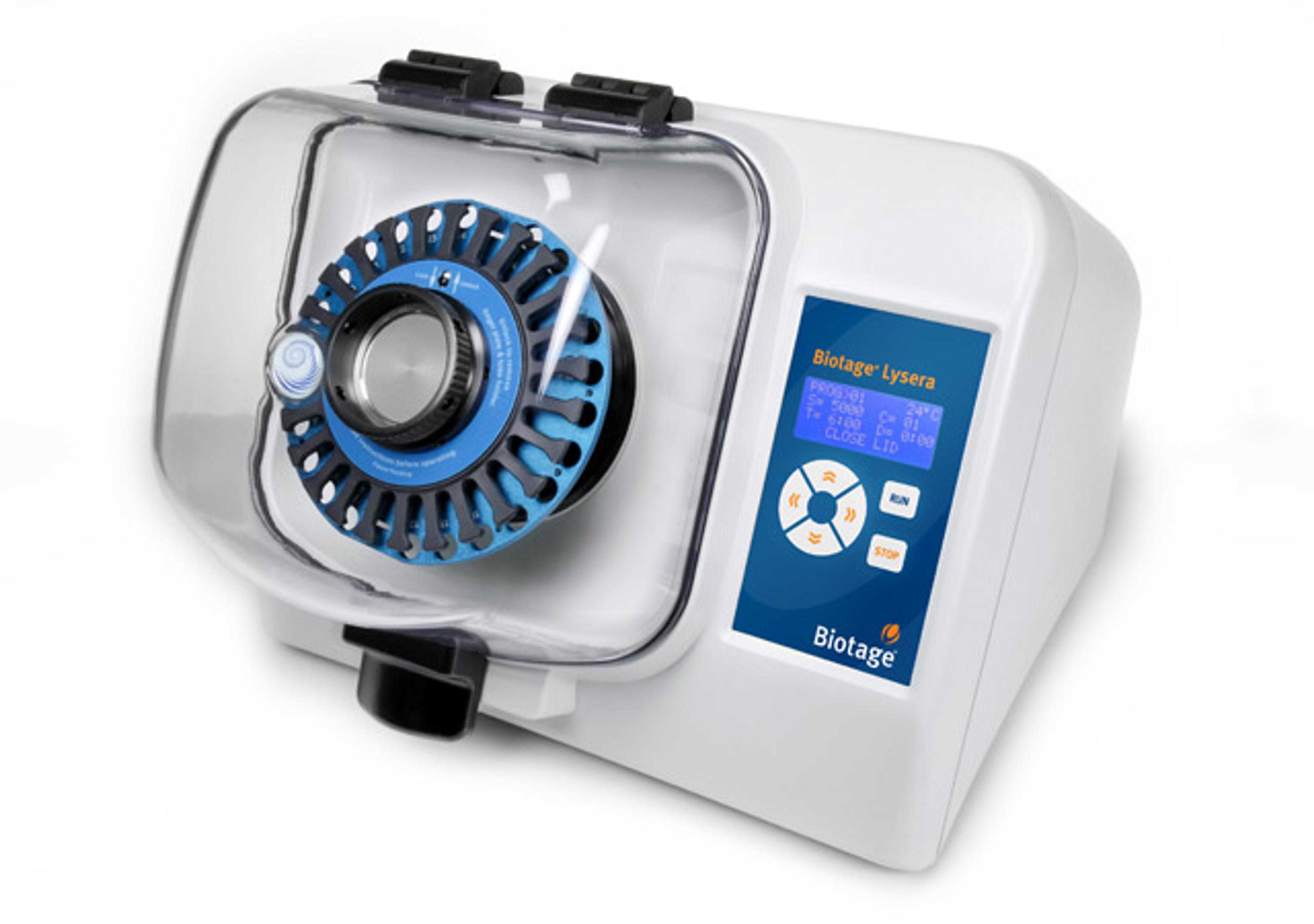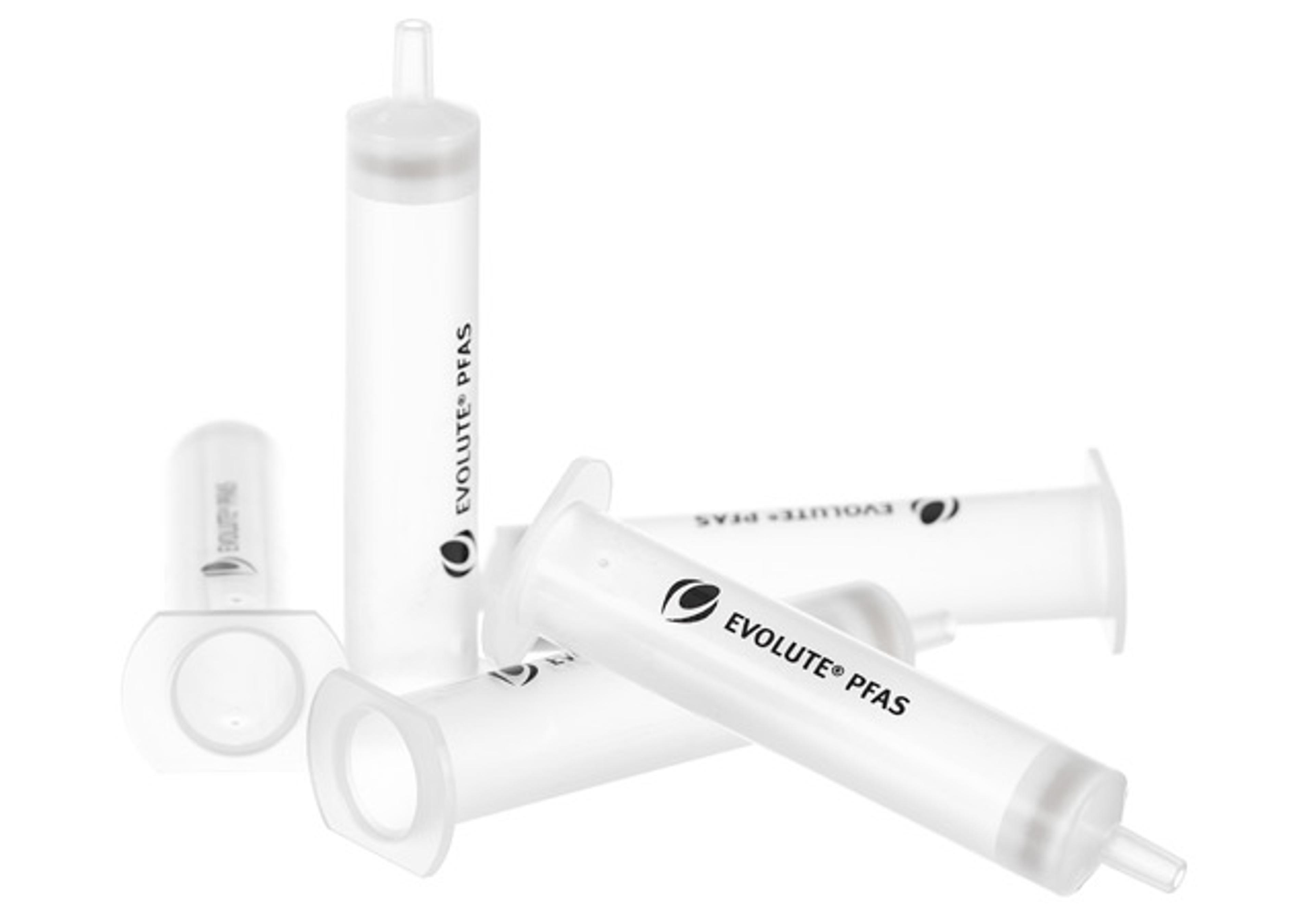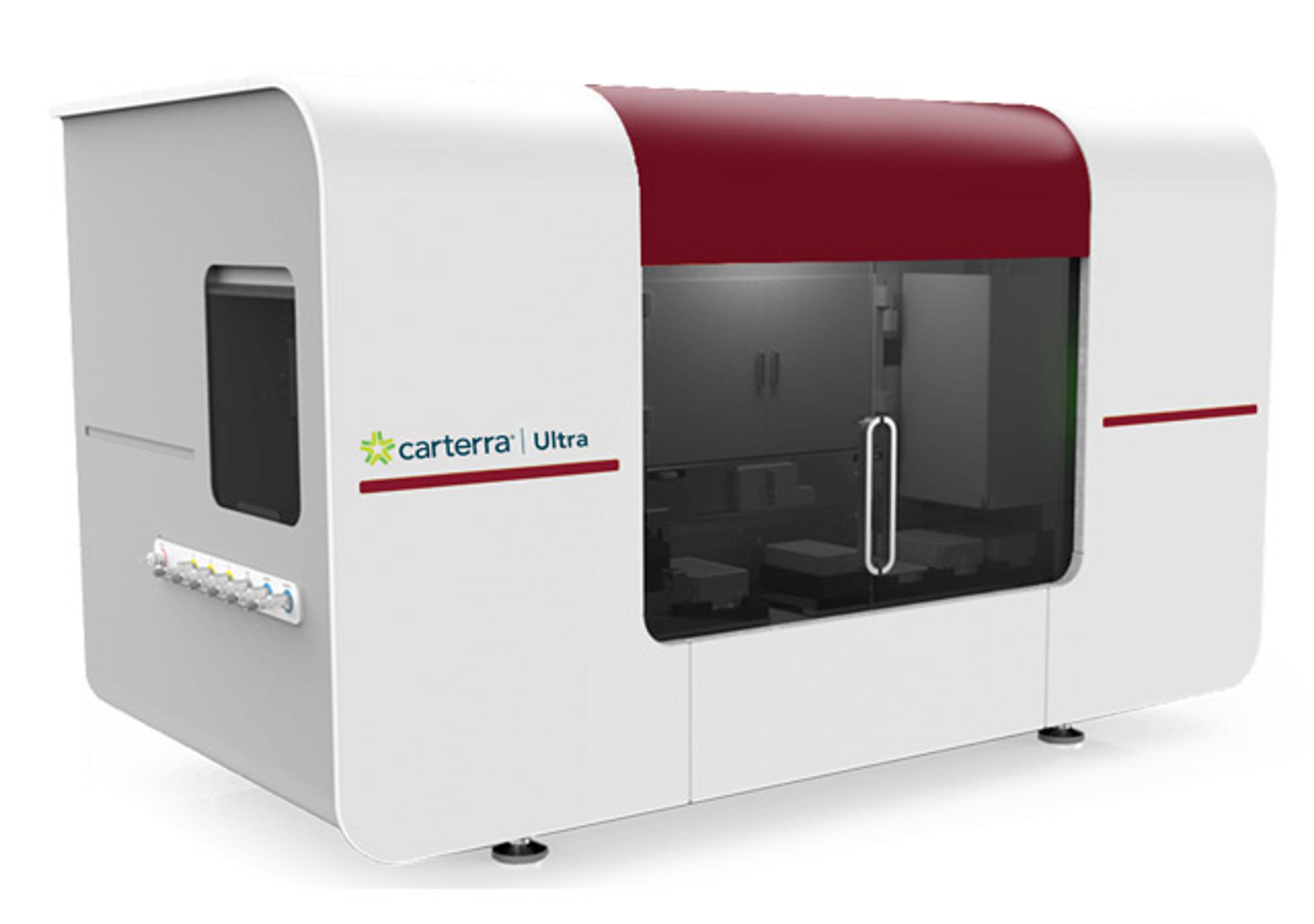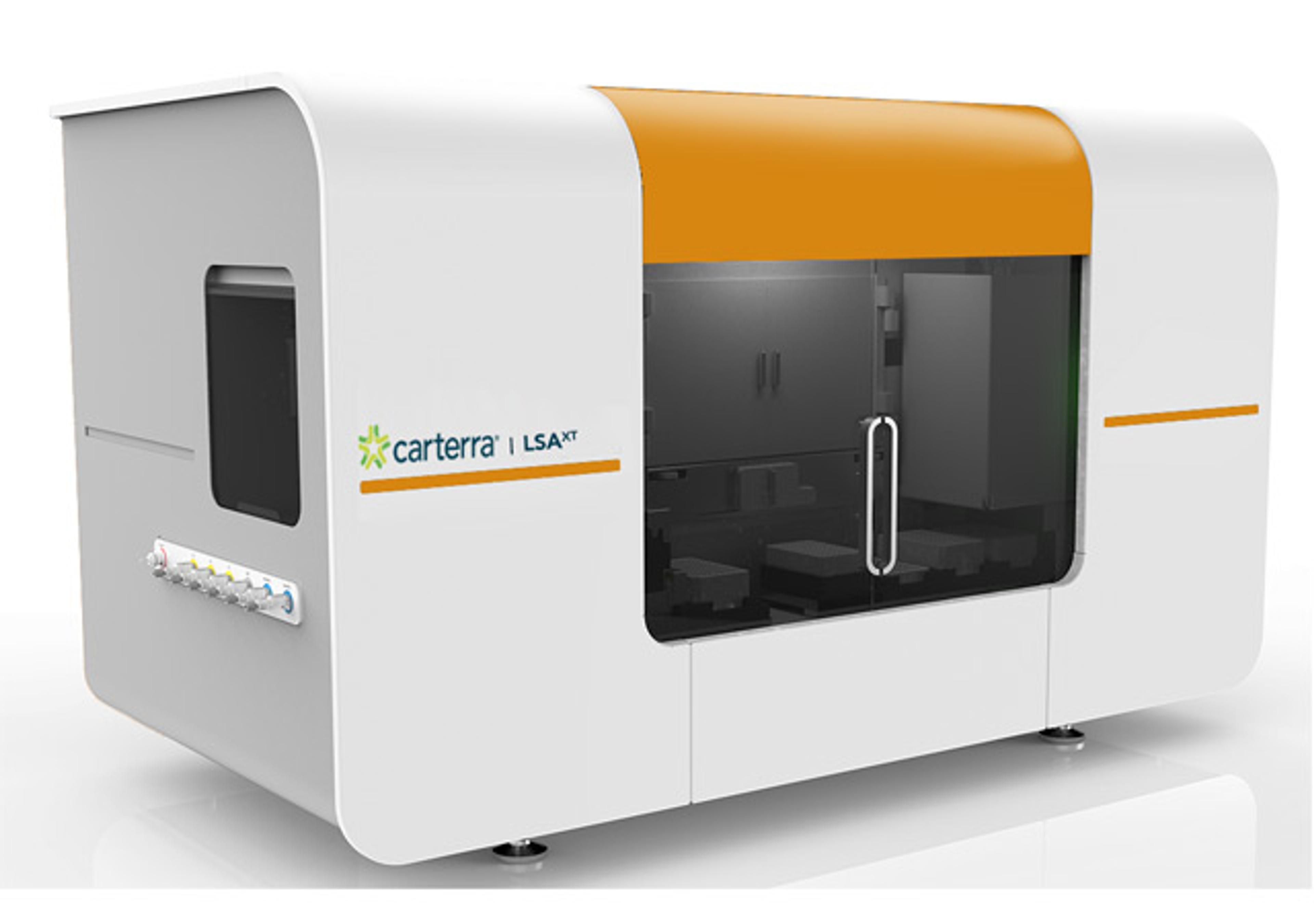Human Recombinant MIP-1 beta (CCL4)
Macrophage inflammatory protein-1 beta

The supplier does not provide quotations for this product through SelectScience. You can search for similar products in our Product Directory.
Macrophage inflammatory protein-1 beta (MIP-1 beta), also known as CCL4, is a member of the CC family of chemokines and is most closely related to CCL3 or MIP-1 alpha. MIP-1 beta is predominantly synthesized by activated CD8+ T cells, specifically the perforin-low memory CD8+ T cells (Kamin-Lewis et al.). MIP-1 beta signals through CCR5, which is the major coreceptor required for entry of certain strains of HIV-1 into permissive cells, and it is known that HIV-1-specific CD8+ T cell clones that exhibit cytotoxic T lymphocyte (CTL) activity secrete MIP-1 beta upon encountering sensitized target cells (Menten et al.). MIP-1 beta attracts a variety of immune cells to sites of microbial infection. In vitro experiments show that human MIP-1 beta tends to attract CD4+ T lymphocytes, preferentially of the naïve (CD45RA) phenotype (Schall et al.). In addition to its chemotactic functions, MIP-1 beta induces the release of proinflammatory cytokines, mast cell degranulation, and NK cell activation (Schall et al.). It has been shown that there is an increased expression of MIP-1 beta in CD8+ and CD4+ T cells at the site of inflammation in sarcoidosis patients (Barczyk et al.).

